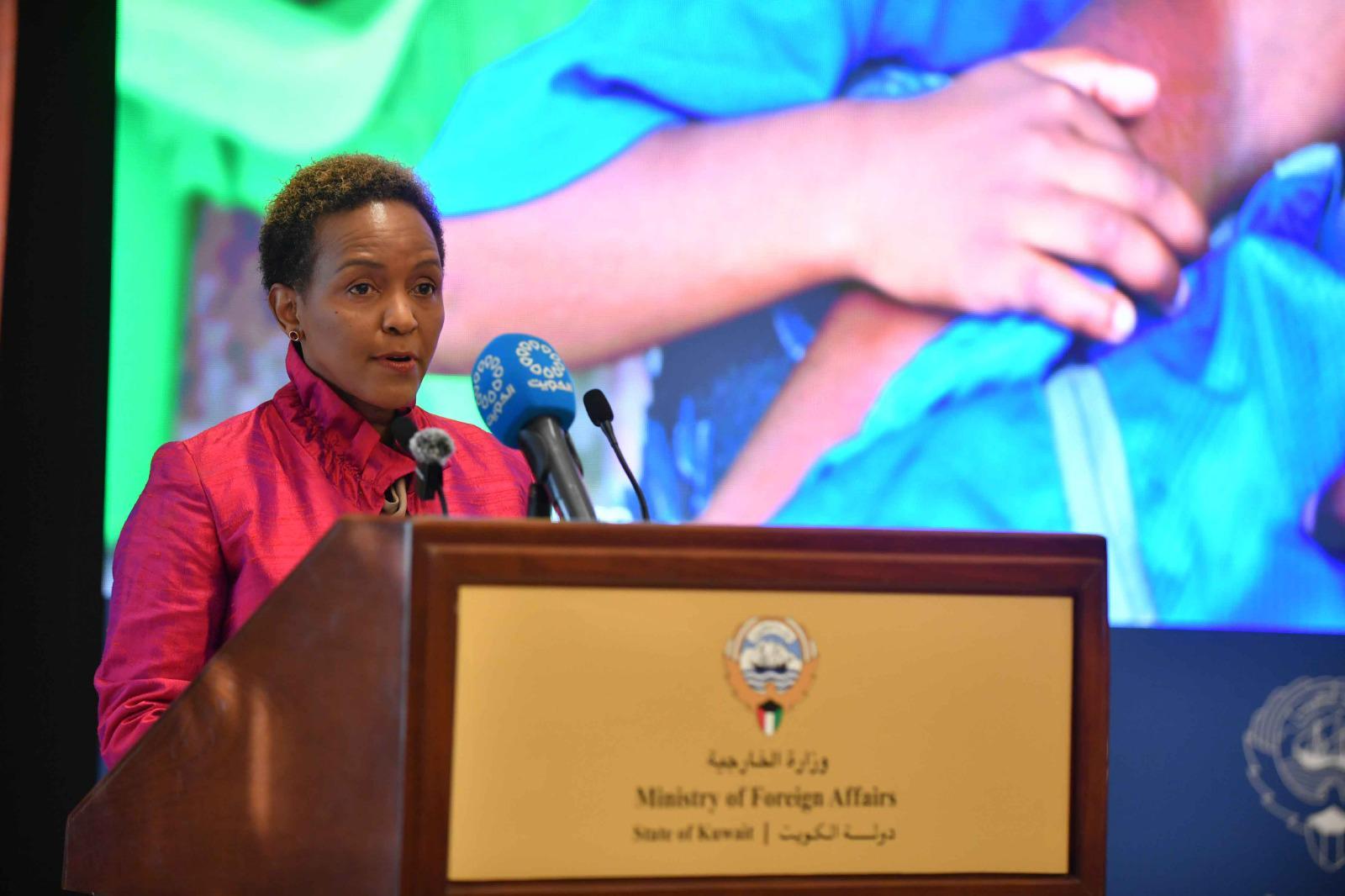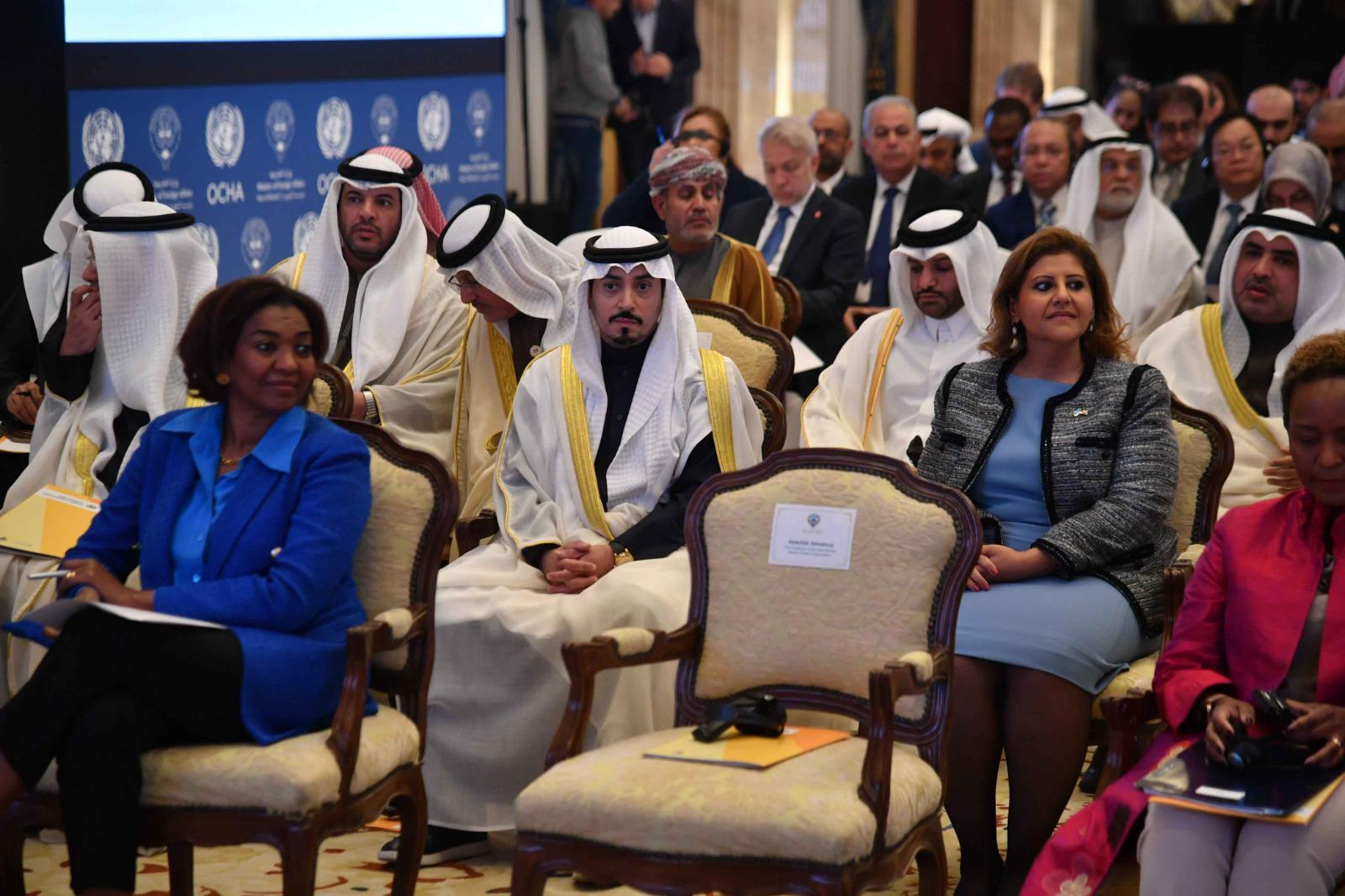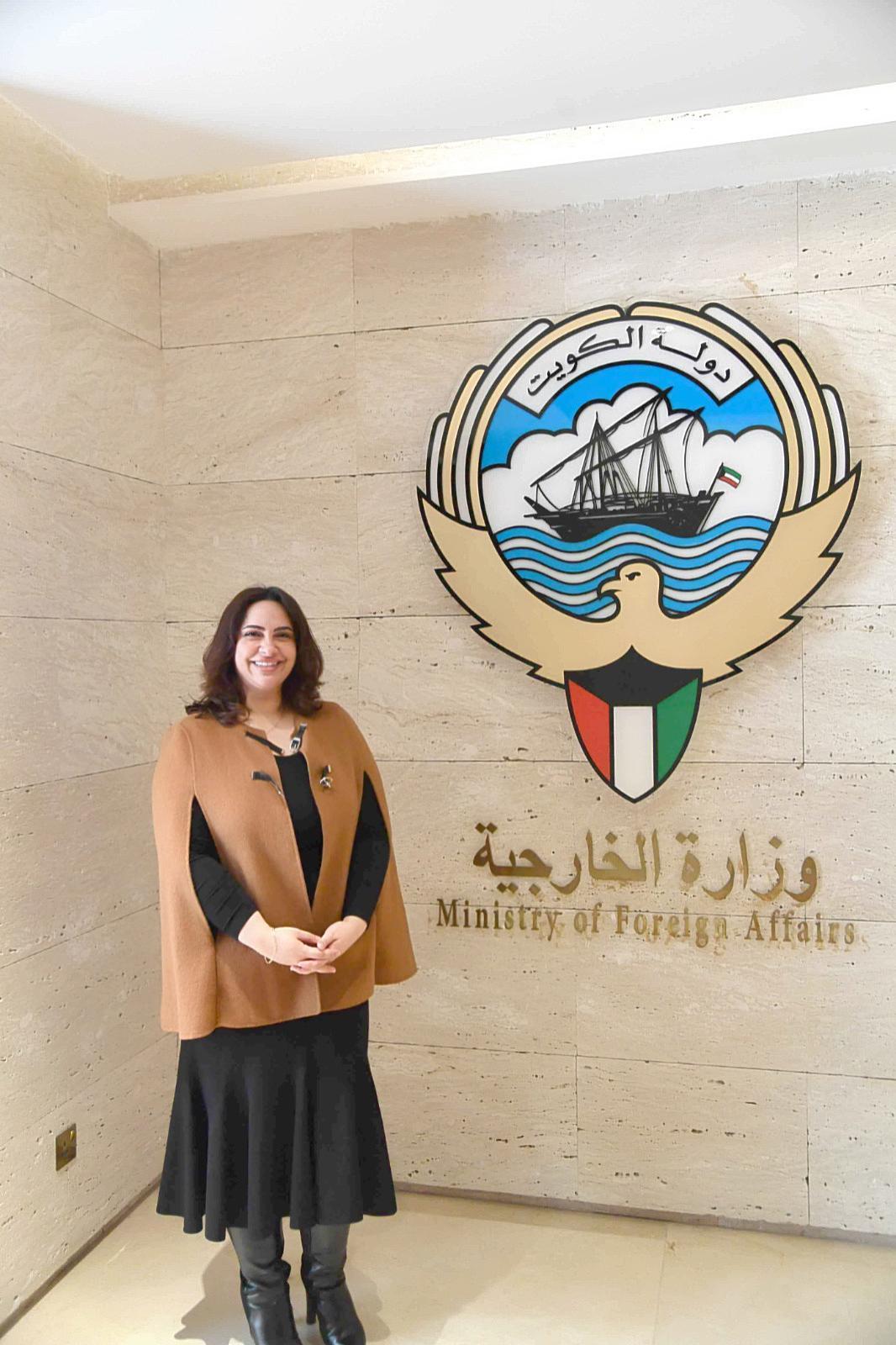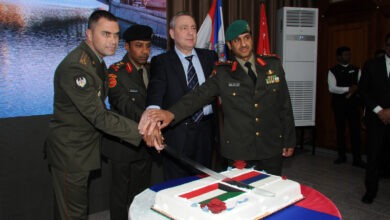Kuwait hosts the launch of the Global Humanitarian Overview 2024

By Shouq Al-Mulla
Special to The Times Kuwait
Under the patronage of His Excellency Mr. Abdullah Ali Al-Yahya, Minister of Foreign Affairs, the Ministry of Foreign Affairs in the State of Kuwait, in partnership with the United Nations Office for the Coordination of Humanitarian Affairs (OCHA), hosted a high-level panel discussion to discuss collective action in humanitarian diplomacy on the occasion of the launch of the Global Humanitarian Overview 2025.
The Global Humanitarian Overview is an annual overview that highlights humanitarian trends and needs around the world, and joint inter-agency plans to respond to crises which includes a summary of the humanitarian funding needed to implement plans over the coming year.

The event in Kuwait is one of three taking place during the day, alongside the other two in Geneva and Nairobi, where high-level panellists will address the crucial role of humanitarian diplomacy in delivering effective and coordinated assistance. Participants included speakers from the Kuwait Fund for Arab Economic Development, the German Federal Foreign Office, the World Food Programme, and Amal International highlighted the urgent need for greater funding to bridge the growing gap in humanitarian appeals, as well as the importance of principled action, particularly in the context of the rapidly evolving geopolitical landscape.
The event kicked off with a speech by His Excellency Ambassador Sheikh Jarrah Jaber Al-Ahmad Al-Sabah, Deputy Minister of Foreign Affairs, who welcomed the guests to launch the 2025 Humanitarian Overview inaugurated by the United Nations Office for the Coordination of Humanitarian Affairs (OCHA) under the theme of Strengthening Global Solidarity and Empowering Local Communities.
In his speech during the conference, he stated that the aim of this event is to shed light on the escalating humanitarian challenges facing our world and the global response required in the coming year, extending thanks and gratitude to the United Nations and its Secretary-General, Mr. Antonio Guterres, for all the tireless international efforts to support international humanitarian work, and for the Secretary-General’s commitment to humanitarian values, solidarity and partnership, and thanking the United Nations employees who work in difficult and dangerous conditions, recalling the great sacrifices made by those who lost their lives while performing their duties, explaining that their great sacrifices will remain a source of pride and inspiration for all of us.
He stressed that the State of Kuwait stands here today as a key partner and supporter of international humanitarian efforts and in support of international efforts in this framework, as humanitarian diplomacy is one of the main pillars of Kuwaiti foreign policy, explaining that supporting peoples to overcome their crises is a moral and humanitarian duty, and a binding pledge in the context of its membership in the Human Rights Council for the period from 2024-2026.

He continued: We are determined to Continuing to shoulder our responsibilities by working jointly with all regional and international partners to address humanitarian crises and alleviate the suffering facing millions of people as a result of armed conflicts and natural disasters, which have become a threat to the security and stability of many countries in the world, adding that the overview of humanitarian work for the year 2025 shows the extent of the challenges facing the international community and is an opportunity to advance international humanitarian work by enhancing cooperation between all concerned parties, including donor countries, countries receiving international aid, regional and international organizations, in order to bring about real change on the ground and develop the mechanisms in place to deliver humanitarian aid.
He stressed that the deterioration of the situation in the occupied Palestinian territories and the Lebanese Republic cannot be ignored as a result of the blatant aggression and systematic attacks by the Israeli occupation forces, which have led to increased human suffering and the loss of tens of thousands of lives, the vast majority of whom are women and children, in addition to the displacement of hundreds of thousands of civilians in flagrant violation of international law and Security Council resolutions.
He pointed out that the State of Kuwait renews its full solidarity with the brothers in Palestine and Lebanon, calling on the international community to join efforts to deliver aid in a sustainable and safe manner and activate international mechanisms to hold accountable war crimes and ensure that there is no exemption, stressing the need to address the root causes of humanitarian crises, including settling conflicts through peaceful means, addressing the effects of climate change, achieving human justice, and investing in long-term solutions that are sustainable and innovative.
At the end of his speech, Sheikh Jarrah said that Kuwait renews its commitment to supporting all international efforts and initiatives aimed at meeting the growing humanitarian needs and enhancing the resilience of affected communities, calling on international organizations, charitable associations, and civil society institutions to support the efforts of the United Nations, its agencies, and specialized programs in 2025.
For her part, the Assistant Secretary-General for Humanitarian Affairs and Deputy Emergency Relief Coordinator Joyce Msuya, stressed that it is truly appropriate to launch this overview of global humanitarian work under the slogan of humanitarian diplomacy.

Kuwait is not only among the largest donor countries to international aid, but it has also placed itself at the heart of efforts to mediate peace in the region based on Islamic values that call for charity and solidarity. Kuwait has utilized its neutrality to push for more cooperation between countries and across cultures, saying that Kuwait has repeatedly used humanitarian diplomacy to raise funds, advocate for those in need, and promote dialogue between warring parties so that we can reach people in their most difficult times, explaining that the need for humanitarian diplomacy has never been more urgent than it is today. As the overview of global humanitarian action this year clearly shows, the world is suffering from one of the worst humanitarian crises in modern times.
There are 305 million people in dire need of humanitarian assistance, violations of international humanitarian law are increasing, and the number of people forced to flee their homes continues to increase. She stressed that humanitarian crises have become more frequent, complex, and longer-lasting than ever before, and the reasons are clear: record levels of conflict and the rapidly worsening climate emergency are fueling the flames of suffering around the world.
She stressed that the world is struggling to contain many wars in which countries are participating more than any time since the end of World War II, stressing that the consequences are devastating, as civilians are being killed and injured in huge numbers, while homes, hospitals, and basic services are being completely destroyed, and more than 123 million people will be forced to flee conflict and violence by the middle of this year.
She added that 1 in 5 children now lives in or is fleeing a conflict zone, stressing that wars are being fought today with a blatant disregard for human life and disrespect for international law. In Gaza, more women and children were killed last year than in any similar period in any similar conflict over the past two decades. In Ukraine, Yemen, Syria, the Democratic Republic of the Congo, Myanmar, Haiti and many other places, violence and conflict continue to destroy people’s lives.

Furthermore, she said that the climate crisis is now heading towards a catastrophe, stressing that efforts have failed to reduce fossil fuel emissions, which means that we are dangerously close to exceeding the degree and a half set in Paris almost a decade ago.
The impact of this failure is painfully clear, as we find floods in the Sahel, East Africa and Europe, drought in southern Africa and the Americas, and waves of forest fires all over the world. While everyone is affected, the least responsible people get the lion’s share, stressing that the average life expectancy in countries affected by crises is less than 6 years of life expectancy of the world average and vaccination rates are 20% lower than the average and maternal deaths are less than double the average
She said that the United Nations and partner organizations are appealing in 2025 for $47 billion to help nearly 190 million people in 72 countries around the world, stressing that the direct result of what we are suffering from today in the climate change conflict is human control and this gives us the security that we humans are able to solve these problems.

Assistant Executive Director of the World Food Program, Ms. Rania Dagash Kamara, also participated on behalf of the Executive Director, Ms. Cindy McCain. Ms. Rania Daqash highlighted the continued deterioration in food security crises, in which 343 million people suffer from severe hunger, and this number represents a staggering increase of 200 million people compared to what the situation was before the Corona pandemic, with food insecurity reaching critical levels, and humanitarian workers facing great risks. Ms. Dagash stressed the importance of advocacy and humanitarian leadership from all partners.
She also expressed her gratitude to the State of Kuwait for its continued support, which contributes to reaching out to those in need around the world












